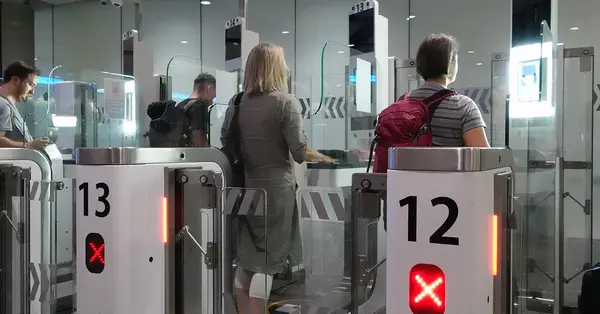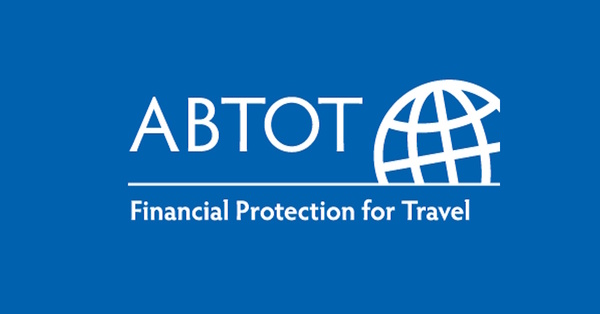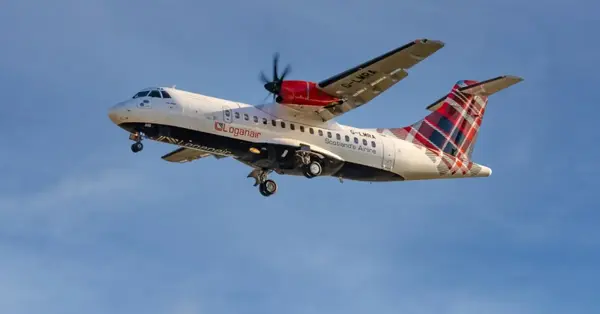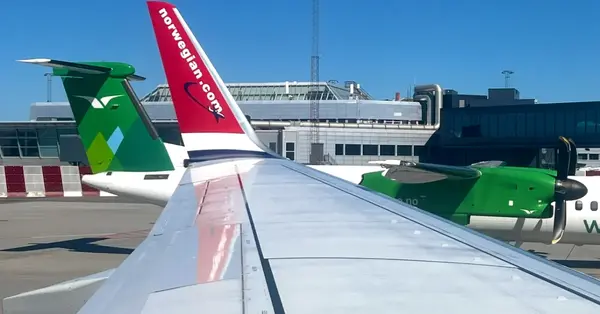You are viewing 2 of your 2 free articles
Costly PCR tests for double jabbed travellers ‘set to be axed’
Double-vaccinated travellers will no longer need to take expensive PCR tests when returning to the UK, potentially in time for the October school half-term holidays.
Health secretary Sajid Javid confirmed that he wants to remove the PCR test requirement when returning from some foreign countries “as soon as I possibly can”.
He told Sky News he was aware of the cost for families taking foreign holidays and that the testing measures should not be in place “for a second longer than is absolutely necessary”.
More: Watchdog urges clampdown on PCR testing market
Covid tests ‘cost travellers £1.1 billion this summer’
Covid risk on flights ‘less than 0.1%’ when passengers test negative in advance
The development came as it was reported that almost a third of people arriving in England and Northern Ireland as the Delta variant took off may have broken quarantine rules.
More than 300,000 cases were passed to investigators between March and May, according to figures seen by the BBC.
The Business Travel Association also revealed 76% of travellers returning to the UK said their PCR test result was not looked at or verified by the UK Border Force.
A new survey asked a series of questions to more than 500 people who travelled outside the UK from January to August.
The research found 97% of 486 people said nobody asked to see their day 2 or day 8 PCR test on their return to the UK. It also showed 97% of travellers believe PCR testing should be removed for fully vaccinated travellers returning from green list countries – while 86% of travellers think it should be removed for amber list countries and 13% for those on the red list.
BTA chief executive Clive Wratten said: “The findings from our latest travel survey are shocking. It is appalling to see over 75% of people travelling throughout the last eight months have not been asked to show their PCR tests on arrival to the UK, some of which cost over £100 to take.”
Javid said he had asked officials to remove the PCR rule “at the moment we can”.
The plan is a response to the way infections have evolved over the summer – a much lower level than scientific models predicted earlier this year when restrictions were eased.
“We have got a huge number of defences; of course we still want to remain. Very cautious, and there are some things that – when it comes to travel for example – there are some rues that are going to have to remain in place.
“But the PCR test that is required upon your return to the UK from certain countries, I want to try and get rid of that as soon as I possibly can.
“I am not going to make that decision right now, but I have already asked officials that at the moment we can, let’s get rid of these kind of intrusions, the costs that generates for families, particularly families just trying to go out and holiday.
“We shouldn’t be keeping anything like that in place for a second longer than is absolutely necessary.”
Passengers returning from green list countries, or amber list destinations if they are fully vaccinated, must currently take PCR tests on or before day two after they arrive back in England.
The government last month announced the cost of NHS coronavirus tests for international travel were being reduced from £88 to £68 each, with the sum for two tests reducing from £170 to £136.
The travel industry has long complained that the costs of tests are too high and an online petition calling on the government to provide free PCR tests for travellers has attracted almost 400,000 signatures.
Javid last month announced a “rapid internal review” of prices charged by government-approved companies after claims holidaymakers were being exploited.
The Competition and Markets Authority has stepped in and on Friday called on the government to intervene in the PCR testing market and tighten up rules for providers.
Ministers are also preparing to scrap the travel traffic light system and will treat green and amber list countries the same. The red list will remain.
Advantage Travel Partnership chief executive Julia Lo Bue-Said said: “Expensive PCR testing should be scrapped along with pre-departure testing for the fully vaccinated to align the UK with most other countries across the EU as there is nothing to indicate that these are a public health measure.
“Particularly now with the government making so many exemptions for many large events such as football matches, festivals, London Fashion Week and the COPSummit – so why is it different for travel?
“We’d like to see the traffic light list disbanded and the government to deem every country as open – particularly for those who are fully vaccinated – unless there is a country where very high or high priority variants are detected.”
Gareth Shaw, head of money at consumer group Which?, said: “The high cost of PCR testing has made the possibility of a holiday abroad out of reach for many this year. Any measures which reduce the cost and burden on holidaymakers while protecting public health are an important step in the right direction.
“However, for the time being, people will still have to use PCR tests to travel from and to the UK.
“Which? has repeatedly raised the alarm over the private testing system with the government, which has too often left travellers out of pocket and, in some cases, without a test result. The government’s review into the CMA’s recommendations must ensure safe, reliable and affordable tests are available for all travellers.”
Prime minister Boris Johnson is expected to announce plans on Tuesday to try to keep Covid under control over the winter, including the scrapping of the possibility of requiring vaccine passports for entry to nightclubs, cinemas and sports grounds.
Meanwhile, law firm PGMBM is launching a legal case against the government’s hotel quarantine policy, describing it as an “unlawful deprivation of liberty” that violated fundamental human rights.
It is asking anyone who was forced to stay in hotel quarantine to register their details and help form a class action aimed at forcing the government to reverse its policy, according to the BBC.
More: Watchdog urges clampdown on PCR testing market
Covid tests ‘cost travellers £1.1 billion this summer’
Covid risk on flights ‘less than 0.1%’ when passengers test negative in advance


















